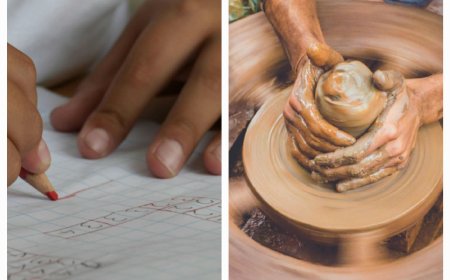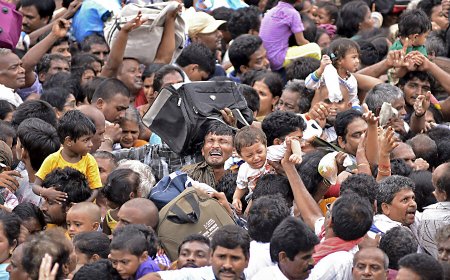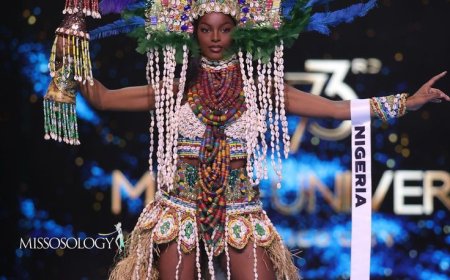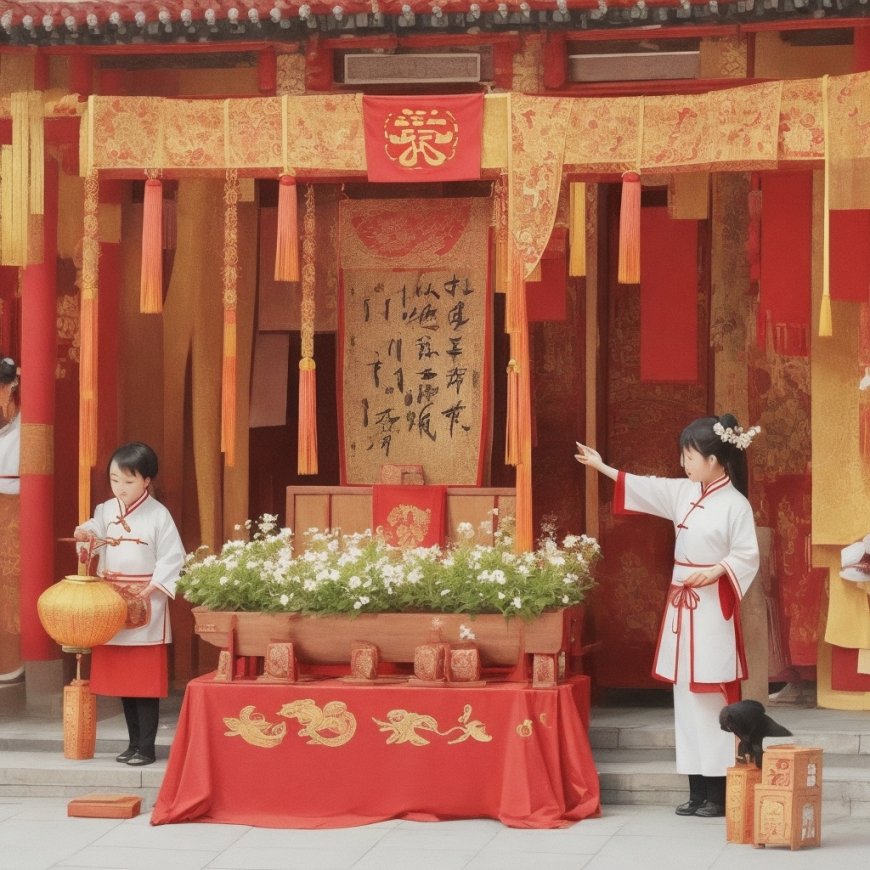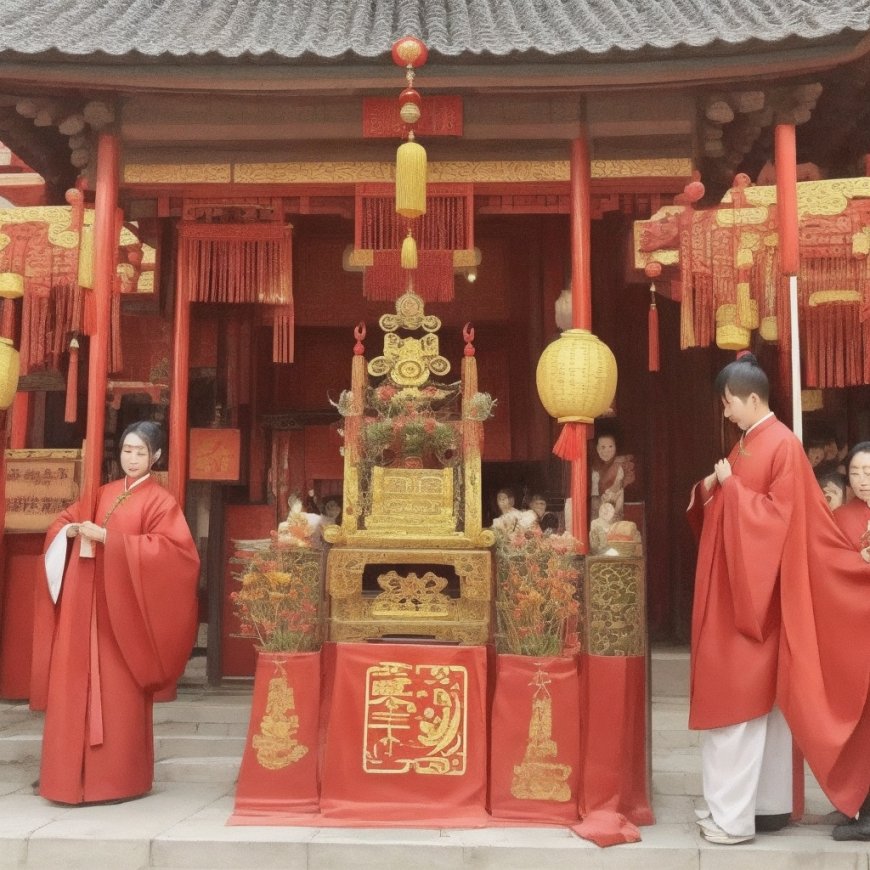Exploring the Diverse Traditions of Chinese Religion
This article delves into the multifaceted world of Chinese religion, highlighting its rich tapestry of diverse traditions, beliefs, and concepts, from yin and yang to the afterlife, providing a comprehensive exploration of this intricate spiritual landscape.
If you're interested in delving into the intricate tapestry of Chinese religion, you'll soon discover that it defies conventional categorization. Unlike many organized belief systems, Chinese religion lacks a centralized authority, a singular founder, or neatly defined denominations. Instead, "Chinese religion" serves as an umbrella term that encompasses a rich interplay of various religious and philosophical traditions that have left a profound impact on China. To explore Chinese religion is to embark on a journey through four major traditions: Chinese folk religion, Confucianism, Taoism, and Buddhism. For further insights into Chinese religion, such as its beliefs about God, the universe, spirituality, the afterlife, values, traditions, and ethics, as well as the influential figures within it,
Chinese Religion: A Tapestry of Traditions
Chinese religious beliefs are far from monolithic; instead, they draw from a diverse array of Eastern religious traditions, including Chinese folk religion, Confucianism, Taoism, and Buddhism. While certain concepts overlap with other world religions, particularly in areas like the afterlife or the spiritual realm, Chinese religion's syncretic expressions give rise to unique perspectives.
A central tenet of Chinese religious thought is the dualistic worldview, emphasizing the complementary principles of yin and yang, representing opposing yet harmonious forces within the universe. These forces emanate from the eternal cosmic principle known as the Tao. Additionally, the concept of heaven, referred to as T'ien, is pivotal in Chinese religion. It is sometimes perceived as an impersonal force, at times as a personal deity, and occasionally equated with the Tao.
Exploring the Afterlife in Chinese Religion
Chinese religion's conception of the afterlife weaves together elements from Chinese folk beliefs, Taoism, and Mahayana Buddhism. According to Chinese belief, when an individual passes away, their spirit is guided by messengers to Ch'eng Huang, the god presiding over walls and moats, for a preliminary judgment. Virtuous souls may journey to Buddhist paradises, the abode of Taoist immortals, or the tenth court of hell for immediate rebirth.
After 49 days, sinners descend to hell, situated at the mythical Mount Meru's base, where they undergo a prescribed period of punishment in various hellish realms. The intervention of the merciful Ti-ts'ang can reduce this sentence. After completing their sentence, the souls partake in an elixir of forgetfulness in preparation for their next reincarnation. They then traverse the wheel of transmigration, leading them to their subsequent life. An alternative belief suggests that they are cast off the Bridge of Pain into a river, propelling them into their next existence.
Chinese Beliefs on Body and Soul
Chinese philosophy posits that everything in existence emanates from the Tao, and humans represent only a minuscule facet of this cosmic force. Ancient Chinese thought acknowledged a dualistic view of the soul: the lower, sensory soul fades upon death, while the rational soul, known as "hun," endures and becomes the focal point of ancestor veneration.
One pivotal concept in Chinese religious belief is "ch'i," a term meaning breath, air, or vapor. In the context of religion, it signifies life energy or life force. Each individual is allocated a specific amount of ch'i, which they must cultivate, regulate, and augment to attain longevity. Taoist practices often revolve around the regulation and enhancement of one's ch'i, with Tai Chi being a well-known example in the Western world.
Understanding Ch'i in Chinese Religion
Ch'i (also spelled Chi or Qi) holds a fundamental role in Chinese philosophy and culture, particularly in Taoism. It encompasses the idea of energy flow or life force that permeates all aspects of existence. The nature of ch'i has been a subject of debate in Chinese thought. Some perceive ch'i as a distinct force separate from the physical world, while others argue that it emanates from physical matter. For Chinese Buddhists and Taoists, ch'i is the source of all matter.
Maintaining the quality, quantity, and balance of ch'i is deemed essential for good health and longevity. Practitioners employ various techniques, including breath control, Tai Chi, massage, and acupuncture, to regulate ch'i. Traditional Chinese medicine extensively relies on the concept of ch'i for its principles, with breath control being especially integral in balancing one's ch'i. Controlled and meditative breathing, known as hsing-ch'i, envisions breath as a visible current flowing through the body. Another breathing exercise, t'ai-hsi, seeks to replicate the fetal breathing pattern and is associated with longevity and immortality in Taoism.
Buddhist Deities in Chinese Religion
Chinese Buddhism shares many beliefs with other forms of Mahayana Buddhism, featuring familiar bodhisattvas and religious figures. However, certain Buddhist deities hold particular significance in the Chinese context. These include:
- Kuan-Yin: The Chinese and female embodiment of the Bodhisattva Avalokitesvara.
- Jade Maiden: An acolyte of Kuan Yin.
- Golden Youth: Another acolyte of Kuan Yin.
- Kuan-Ti (Sangharama): A protector of Buddhism.
- Wei-To (Skanda): Guardian of the Dharma.
- Four Guardian Kings (Si-Ta-Tien-Wang): Comprising Mo-Li Ching, Mo-Li Hai, Mo-Li Shou, and Mo-Li Hung, they serve as guardians of the cardinal directions and have specific attributes.
Chinese Folk Deities
Chinese religion features a category of deities known as "place gods" or T'u-ti. These deities exercise jurisdiction over specific locations, such as bridges, homes, streets, or fields. T'u-ti deities are subservient to Ch'eng Huang, the spiritual magistrate of the city. Typically, a T'u-ti deity is a deified historical figure who aided a particular community during their lifetime. It is believed that by deifying and offering sacrifices to them, their benevolent assistance can continue from the spirit world. In cases of misfortune or neglect, a new patron deity is chosen when it is perceived that the T'u-ti has lost interest.
Chinese Belief in Ghosts and Spirits
Chinese thought acknowledges the presence of a multitude of spirits, both benevolent and malevolent, populating the world. These spirits encompass nature demons (kuei-shen), evil spirits or devils (oni), and ghosts (kui). Evil spirits are thought to shun light, leading to the development of rituals involving fire and illumination, such as bonfires, firecrackers, and torches. Furthermore, evil spirits are believed to move in straight lines, contributing to the winding paths and roads found throughout China.
However, not all spirits are malevolent; some are merely unhappy. Ancestor worship is a testament to the enduring belief that the souls of the deceased persist after death and require appeasement through offerings and reverence. Spirits that are left discontented due to unfortunate circumstances surrounding their death, improper burials, or the absence of descendants may transform into ghosts, often referred to as "hungry ghosts." Ghosts may engage with living beings to fulfill their needs or draw attention to their plight, sometimes taking drastic measures.
Heaven in Chinese Religious Belief
The concept of heaven, known as T'ien, holds a prominent place in indigenous Chinese religion. It can denote a god, an impersonal force, or both, and its interpretation is far from uniform. Scholars have grappled with whether T'ien represents a force akin to fate or a personal deity. Similarly, it remains unclear whether ancient Chinese beliefs ascribed to T'ien the capacity to respond to human supplication or if it acted in accordance with its inherent principles.
T'ien shares a close association with Shang-ti, often used interchangeably with the term. Initially, T'ien referred to the sky, while Shang-ti denoted the deity inhabiting it. Over time, T'ien evolved into a divine power, and Shang-ti merged with it during the Chou dynasty. In the early Chou period, T'ien assumed an anthropomorphic form, but later interpretations emphasized its impersonal, nature-like attributes. Regardless of these interpretations, both Shang-ti and T'ien wielded influence over fertility, both in terms of agricultural crops and human procreation.
A pivotal consequence of the concept of heaven in Chinese religion is the "Mandate of Heaven" (t'ien-ming). According to this notion, rulers govern with divine sanction, contingent on their virtue rather than an inherent right. Crucially, this divine permission was considered revocable in cases of insufficient virtue. Societal and political unrest were frequently interpreted as signs that the Mandate of Heaven had been withdrawn, justifying the overthrow of ruling authorities and the establishment of a new dynasty.
Exploring the Tao in Chinese Religion
The Tao stands as the central principle of Taoism, exerting profound influence throughout Chinese thought. It represents the ultimate reality, an eternal and characterless principle that encompasses all potentialities and opposites. The Tao transcends description and defies categorization.
Taoist Deities and Traditional/Folk Deities
Taoism introduces the concept of "place gods" or T'u-ti, a recurring category of Chinese deities limited to specific locales such as bridges, homes, or streets. T'u-ti deities operate under the jurisdiction of Ch'eng Huang, the spiritual magistrate of the city. These deities often originate from deified historical figures known for their contributions to particular communities. By deifying and offering sacrifices to them, communities believe they can secure continued assistance from these spirits in the afterlife.
Yin and Yang: The Cosmic Dance of Duality
In the realm of Chinese and Eastern philosophy, the yin and yang principles reign supreme. They embody the fundamental, opposing, yet harmonious forces that constitute the fabric of existence. Emerging from the Supreme Ultimate, these principles represent the dynamic interplay governing the universe and all within it.
The Significance of Yin and Yang
Yin, characterized by qualities such as earthiness, passivity, darkness, and the feminine, complements the active, masculine, light, and penetrating attributes of yang. Together, these forces form the basis of all phenomena, guiding countless aspects of Chinese thought, including astrology, divination, medicine, art, and governance.
Chinese religion's intricate tapestry weaves together diverse traditions and belief systems, offering a profound exploration of spirituality and the human experience.
What's Your Reaction?











